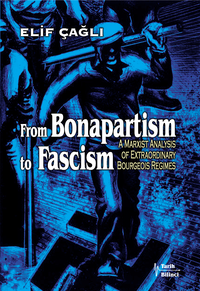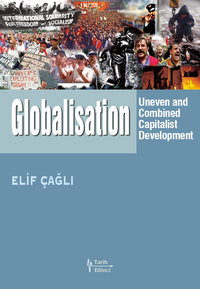Marxists like Bukharin and Pyatakov considered imperialism as “a system of foreign policy” and consequently took wrong political attitudes about national self-determination. In fact, they shared Lenin’s thought that the 20th century was the era of finance capital. But for Bukharin and Pyatakov, the concept of imperialism meant the “policy” pursued by finance capital. That was the point they moved away from Lenin. However, their approach was completely different from that of renegades like Kautsky who preached that a peaceful policy is well possible and favourable in the imperialist epoch. Bukharin and Pyatakov regarded imperialism as an unavoidable policy of finance capital based on oppression and violence. Bukharin said “Such a policy implies violent methods, for the expansion of the state territory means war”. [1]
In fact, the reason that propelled Bukharin to make this assessment of imperialism was his analysis of world economy based on the idea of “national capitalist trust”. According to him, despite a fierce competition on the international arena in the imperialist epoch, competition was coming to an end within national borders because of monopolization. And with active involvement of the state in the economy, one unified trust was appearing on a national scale. And this results in wars between capitalist countries on the international arena for extending their national borders. Finance capital could not do without colonies.
But Lenin analyzed and defined imperialism not as a policy of finance capital, but rather as the very international economic system which itself is just the dominance of finance capital. As a result, Lenin did not consider colonies a sine qua non for finance capital. He was right.
It is quite possible to gain the political independence within the limits of the system through struggles for national liberation in colonial countries. Yes, imperialist epoch is a reactionary period in general. But this fact does not mean that imperialist countries can only maintain their domination by colonizing other countries. Besides, the real question at stake is not whether imperialist countries would grant political independence to colonial countries or not. The question is whether it is possible to gain political independence within the operation of the laws of imperialist system without breaking with it. Lenin, considering it possible, pointed out that it was through national struggle to achieve it:
National struggle, national insurrection, national secession are fully “achievable” and are met with in practice under imperialism. They are even more pronounced, for imperialism does not halt the development of capitalism and the growth of democratic tendencies among the mass of the population. [2]
In addition, Lenin criticized Rosa Luxemburg, Pyatakov and Bukharin for being carried away by the tendency of imperialist economism. These Marxists held a view that can be summarized as self-determination of nations was impossible under capitalism, and it was unnecessary under socialism since national question would have already been solved under socialism. What lies beneath their error was the fact that they confused economic liberation with political liberation. So Rosa and co-thinkers substituted the question that if it was possible to gain political independence under capitalism for the fact that there was economic dependence. Lenin reminded them that finance capital was able to subjugate, and already did, an independent country. All theses about the “impossibility” of political independence under the domination of finance capital resulted from lack of an adequate understanding of this matter. Lenin said:
In this situation it is not only “achievable”, from the point of view of finance capital, but sometimes even profitable for the trusts, for their imperialist policy, for their imperialist war, to allow individual small nations as much democratic freedom as they can, right down to political independence, so as not to risk damaging their “own” military operations.[3]
It is indeed not correct to assert that it is impossible for national self determination to be achieved within the framework of imperialist system. But a self-determination which is merely political independence does not alter painful economic consequences of capitalist system for the working class and toiling masses. From this point of view, what is decisive in determining the fate of the oppressed and exploited masses of weak nations is whether they will emancipate from capitalism or not. Only in this context it can be said that “right of determination” is impossible under capitalism and unnecessary –because the problem will have already been solved– under socialism. But to say that does not mean that we have taken a concrete attitude on the question of the right of political independence which was a practical and actual question on the agenda of the colonial countries. Upon this was Lenin’s criticism of Rosa based. Lenin was right in pointing out that she confused two different aspects.
On the other hand, to claim that nations can be economically independent without breaking with imperialist system is a nonsense and reactionary petty-bourgeois utopia. Therefore, the point Lenin and Rosa disagreed on was only the question of “political independence”. They were in complete agreement on the other side of the question, that is, the impossibility of national independence on the level of economy. Rosa Luxemburg correctly grasped the limited side of the national liberation struggle with respect to the future –e.g. the proletarian revolution–, and drew attention to problems that can be created by petty-bourgeois nationalist tendencies. While petty-bourgeois left tendencies are obscuring the revolutionary line of the proletariat, one must definitely be alert that defending the right to national self-determination and opposing annexations should not cast a cloud over the danger of nationalism and social-chauvinism. In capitalist countries where national question has already been solved, and the proletarian revolution is on the agenda, a real danger lies in that the native bourgeoisie may try to sell their self-seeking adventures under cover of national self-determination.
Marxists whom Lenin criticized for being fallen into the erroneous imperialist economism did not take into account the different conditions between the countries that were belatedly climbing the steps of history and the countries in which national question was no more on the agenda. They did not reflect adequately on the historically progressive character –with respect to past– of political independence of colonial countries which were backward countries progressing towards capitalism and their joining in the family of modern nation states. For example, Bukharin opposed the inclusion of the principle of national self-determination to the party programme proposed in the Eight Congress of RCP(B) (1919). His reasoning was: “A nation means the bourgeoisie together with the proletariat. And are we, the proletarians, to recognize the right to self-determination of the despised bourgeoisie?”[4]
But according to Lenin, the inconsistency that disturbed Bukharin was a fact which existed in real life. Bukharin was talking about a process of separation within nations resulting from the process of capitalist development, i.e. about separation of the proletariat from the bourgeoisie. For backward nations this separation was not a completed fact yet. And Lenin took differences of various nations in terms of their historical conditions into consideration on the question of how the right to national self-determination would be used. For example, the following was in his draft program presented to the Eight Congress of RCP(B):
On the question of who expresses the will of the nation on the matter of secession, the R.C.P. upholds the historical class view and takes into consideration the level of historical development of the nation concerned—on the way from the Middle Ages to bourgeois democracy, or from bourgeois to Soviet or proletarian democracy, etc.[5]
In short, in order to take a correct attitude in concrete cases, those nations that are at an historical stage where separation between proletariat and bourgeoisie has not sufficiently developed should also be taken into account. Lenin pointed out an important fact: “We say that account must be taken of the stage reached by the given nation on its way from medievalism to bourgeois democracy, and from bourgeois democracy to proletarian democracy.”And concluding: “Every nation must obtain the right to self-determination, and that will make the self-determination of the working people easier.” “Communism cannot be imposed by force.”[6]
[1] Bukharin, Imperialism and World Economy, http://www.marxists.org/archive/bukharin/works/1917/imperial/08.htm
[2] Lenin, “A Caricature of Marxism”, pp.50-51
[3] Lenin, ibid, p.51
[4] Lenin, “Report On The Party Programme (March 18-23, 1919)”, CW, Vol. 29
[5] Lenin, “Draft Programme of the RCP(B)”, CW, Vol. 29
[6] Lenin, “Report On The Party Programme (March 18-23, 1919)”
link: Elif Çağlı, Imperialism and the question of political independence, August 2002, https://enternasyonalizm.org/node/597






